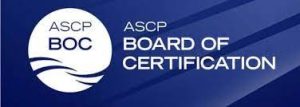Medical Laboratory Sciences Program (BSc. MLS) at Gulf Medical University aims to provide quality education that prepares future competent Medical Laboratory Technologist with theoretical knowledge; practical, critical thinking, communication skills; and ethics for performing, analysis, and interpretation of clinical laboratory procedures to aid the healthcare disciplines in the diagnosis and management of diseases and disorders.
This program is designed emphasizing on the modern trends on theoretical and practical learning experiences that are based on laboratory sciences and focuses on specific areas such as clinical chemistry, medical microbiology, hematology, histology, immunology, and molecular biology, delivered over 4 years duration with program learning outcomes aligned to Level 6 of the National Qualifications Framework – QF Emirates.
On successful completion of this program, the student will be awarded the degree of BSc. MLS which would be a steppingstone to a challenging career in Laboratory Sciences. Graduates are prepared to enter the medical laboratory science profession and to pursue career opportunities in various laboratory settings including medical, research, and public health. The MLS curriculum also provides a solid preparation for those who wish to pursue postgraduate level. Students who successfully complete the degree program and upon fulfilling the requirement are eligible to take the Medical Laboratory Technologist (MOH, DHA, and DOH) national licence.
Local Accreditation:
- CAA initial accreditation 2014
- CAA full accreditation 2022
International Approval:
- (ASCP-BOC) American Society for Clinical Pathology Board of Certification 2021 [link]

The program is approved by the (ASCP) American Society for Clinical Pathology; graduates are eligible to sit for the (ASCP – BOC) international certification exam (ASCPi) without equivalency of their degree in USA.



